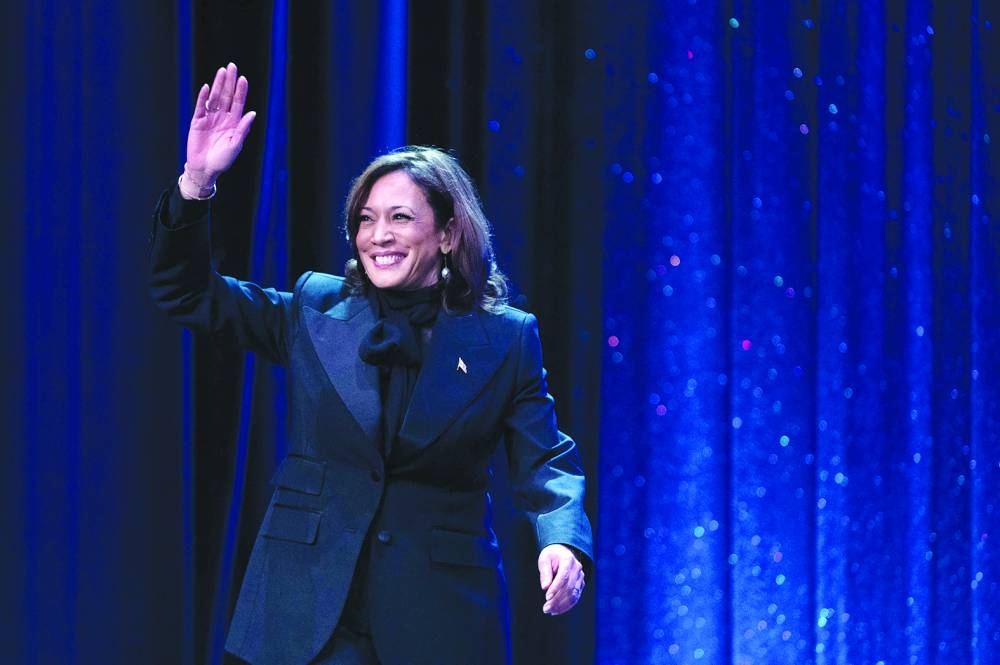Vice-President Kamala Harris stepped out recently on the campus of a Pennsylvania university and was greeted by a troupe of cheerleaders.
“She’s got that fever. She’s got that heat. She’s our VP. You can’t compete,” they chanted.
Harris, 58, is hoping to whip up enthusiasm among younger voters, an age group that 80-year-old President Joe Biden has trouble reaching.
To that end, Harris was bestowed on Friday with a new role — tackling the scourge of gun violence that has wreaked terror in schools across the country.
Alongside Harris and Biden during the White House announcement of her new role stood the first member of Congress from Generation Z, 26-year-old Democrat Maxwell Frost.
Speaking about the shootings that have become a tragic fixture of American life, Harris, a former California attorney general who has sometimes struggled to connect with audiences, sought to hit a note of empathy.
“In today’s world, on the first day of school, students, yes, learn the name of their teacher. Yes, they learn the location of their cubby and they learn how to quietly hide from an active shooter,” said Harris, citing the common practice in US schools of teaching youngsters how to stay alive during an attack by a gunman.
Gun violence is on a list of key issues, including climate change and discrimination that Harris — the first woman, Black person and person of South Asian descent to hold the vice-president’s office — is addressing in a national tour of colleges entitled “Fight for Our Freedoms.”
The month-long tour will take her to universities where she will target African-American and other minority students, speaking on issues that concern them most.
She is working to mobilise two electoral groups who offered the keys to the White House to Biden in the last election, and whose vote will be vital again next year: young people and minorities.
“When your generation starts voting in numbers, so many of these things will change,” Harris told students Tuesday at a college in the small Pennsylvania town of Reading, according to local press reports.
“To make a difference in this world, of the many ways you can do it, one of the biggest ways is to vote,” she said in an interview with a student, shared on X, during a visit to a North Carolina campus.
On her tour, the vice-president is greeted with choreography and cheers, in stark contrast to her gloomy poll numbers.
According to the site FiveThirtyEight, which aggregates opinion surveys, a little less than 40 percent of Americans have a favourable opinion of the VP. Biden is more or less in the same range.
Harris tries to hit a personal note to make herself more relatable to the young people she is addressing, talking about her love for music and, in particular, West Coast rap.
That can play both ways: pictures and video of her dancing at a reception celebrating the 50th anniversary of hip hop attracted flattering comments, but also ridicule.
And the White House still regularly has to contend with sometimes scathing articles about the Veep.
In a recent, much-discussed piece, Washington Post columnist David Ignatius called not only on Biden, but also on Harris, not to run again.
“Harris has many laudable qualities, but the simple fact is that she has failed to gain traction in the country or even within her own party,” he wrote.
Republican White House hopeful Nikki Haley, also a woman of South Asian descent, has trained her sharpest attacks on the vice-president.
A former ambassador to the United Nations under then-president Donald Trump, Haley regularly insists that because of Biden’s age, it is the vice-president — who would succeed him if he died or was incapacitated — who must be beaten.
The idea of a President Harris “should send a chill up every American spine,” said Haley.

US Vice-President Kamala Harris waves as she walks onstage to speak during the Congressional Black Caucus Foundation 2023 Phoenix awards dinner at the Washington Convention Center in Washington, DC. (AFP)
